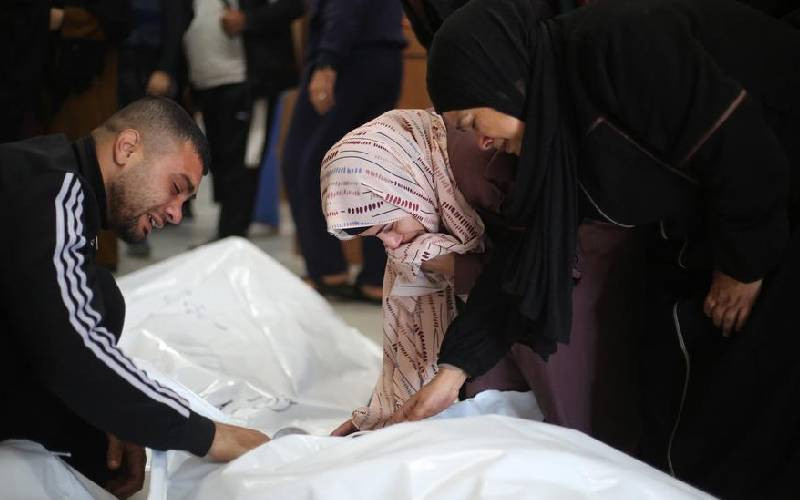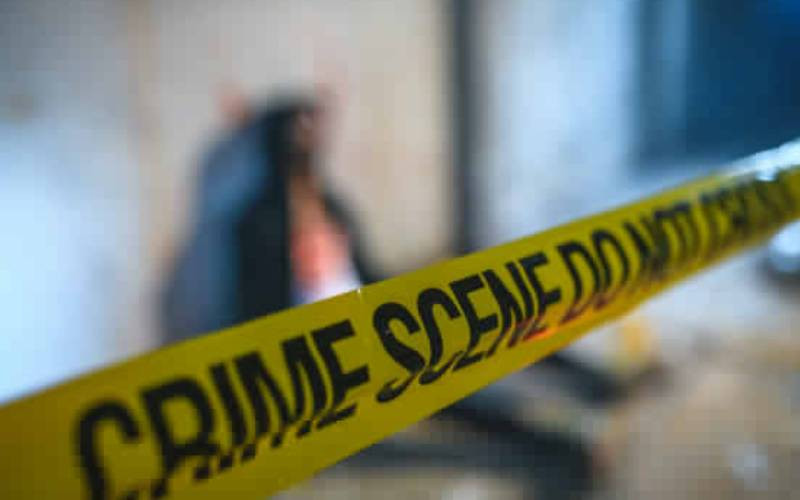PALTSO: Russian serviceman Fyodor Zhuravlyov left home in a rush. He only managed to scrawl a phone number and a few words to his wife on a sheet of paper.
"I'm away on a work trip," the note said, according to a family friend.
Zhuravlyov's wife never saw him again. Late last week the military contacted the family to say that he was killed in combat on Thursday, Nov. 19.
The 27-year-old now joins the growing ranks of the Russian army's unexplained dead, victims of the Kremlin's military engagements inside Russia and, in the past few years, beyond its borders too that are so secretive nobody will officially acknowledge where the deaths have occurred.
Some of the deaths have occurred in Ukraine, where Russian troops have backed separatist rebels, though the Kremlin denies that. Others may have happened in Syria, where Russia says it is helping government forces fight Islamist extremists but only acknowledges a limited military presence.
Zhuravlyov's death was first noticed by Conflict Intelligence Team, a group of Russian investigative bloggers, who used social media posts and other sources to uncover information about Russian military deaths in Ukraine.
At Zhuravlyov's funeral on Tuesday in his home village in western Russia, the commander of his unit said he died while taking part in a counter-terrorism operation in Russia's mainly Muslim region of the North Caucasus, in which armed forces killed 14 Islamist militants in the Kabardino-Balkaria republic.
However, that operation took place on Sunday, according to an official statement, three days after the date of Zhuravlyov's death, inscribed on the plaque attached to a polished wooden cross planted at the head of his grave.
There was no public record of any security forces having been killed in that operation. Russia's southern military district, which oversees military activities in a region that includes Kabardino-Balkaria, declined to comment.
Syria combat
The family friend and another person, a neighbour, who knows Zhuravlyov's family, both said they believed he could have been killed in Syria, though they had no evidence for this.
"And where else could he die?" said the friend, who had been in touch with the family since Zhuravlyov's death.
Reuters has been unable to independently confirm that information. Zhuravlyov's elder brother Alexander, himself a military serviceman, also said he had been killed in an operation inside Russia.
The Russian defence ministry and the foreign ministry did not respond to questions from Reuters about where Zhuravlyov was killed and whether it was in an overseas operation. Russian law allows the state to treat military casualties as a secret.
Russia says its ground forces stationed in Syria are not in combat roles, except in exceptional circumstances.
Stay informed. Subscribe to our newsletter
It says it has a force of marines protecting Tartous, the port Russia's navy leases from the Syrian government, troops guarding an air base near Latakia, also on the Mediterranean, and instructors training Syrian forces how to use Russian-supplied weapons systems.
But there have been persistent reports, denied by Russian officials, that Russian soldiers have been fighting alongside the forces of Moscow's ally, Syrian President Bashar al Assad.
Foreign missions
Zhuravlyov was buried in a metal coffin, carried to the grave with the casket lid shut, in a break with the usual Russian tradition of an open coffin.
His photo, in a black frame, on his grave showed a young army captain with small metal parachutes attached to his military tunic. They indicated he was a part of the elite air landing forces, one of Russia's main assault formations.
According to Zhuravlyov's mother, Ludmila, he graduated from Ryazan Higher Airborne Command School.
The family friend said he later joined a special forces unit of the Main Intelligence Directorate, the intelligence arm of the Russian military known by its Russian initials GRU.
Zhuravlyov lived in Solnechnogorsk outside Moscow, the friend said, the same town where a special forces unit is garrisoned which, according to a report two years ago by Russian state broadcaster Russia Today, has special dispensation to conduct secret operations abroad.
To the sounds of a funeral march performed by a military band, the coffin with Zhuravlyov's body was carried from his parent's modest home, through the streets of the village, to the church for a funeral service.
Family members followed behind, some of them weeping.
Later, at the burial ceremony attended by about 100 people, Zhuravlyov's commander wiped tears from his eyes and addressed the officer's parents: "Forgive us that we didn't save him."
A military guard of honour fired a volley into the air. The burial over, mourners dispersed but Zhuravlyov's parents were the last to leave, his mother lingering next to the cross on his grave.
 The Standard Group Plc is a
multi-media organization with investments in media platforms spanning newspaper
print operations, television, radio broadcasting, digital and online services. The
Standard Group is recognized as a leading multi-media house in Kenya with a key
influence in matters of national and international interest.
The Standard Group Plc is a
multi-media organization with investments in media platforms spanning newspaper
print operations, television, radio broadcasting, digital and online services. The
Standard Group is recognized as a leading multi-media house in Kenya with a key
influence in matters of national and international interest.
 The Standard Group Plc is a
multi-media organization with investments in media platforms spanning newspaper
print operations, television, radio broadcasting, digital and online services. The
Standard Group is recognized as a leading multi-media house in Kenya with a key
influence in matters of national and international interest.
The Standard Group Plc is a
multi-media organization with investments in media platforms spanning newspaper
print operations, television, radio broadcasting, digital and online services. The
Standard Group is recognized as a leading multi-media house in Kenya with a key
influence in matters of national and international interest.








